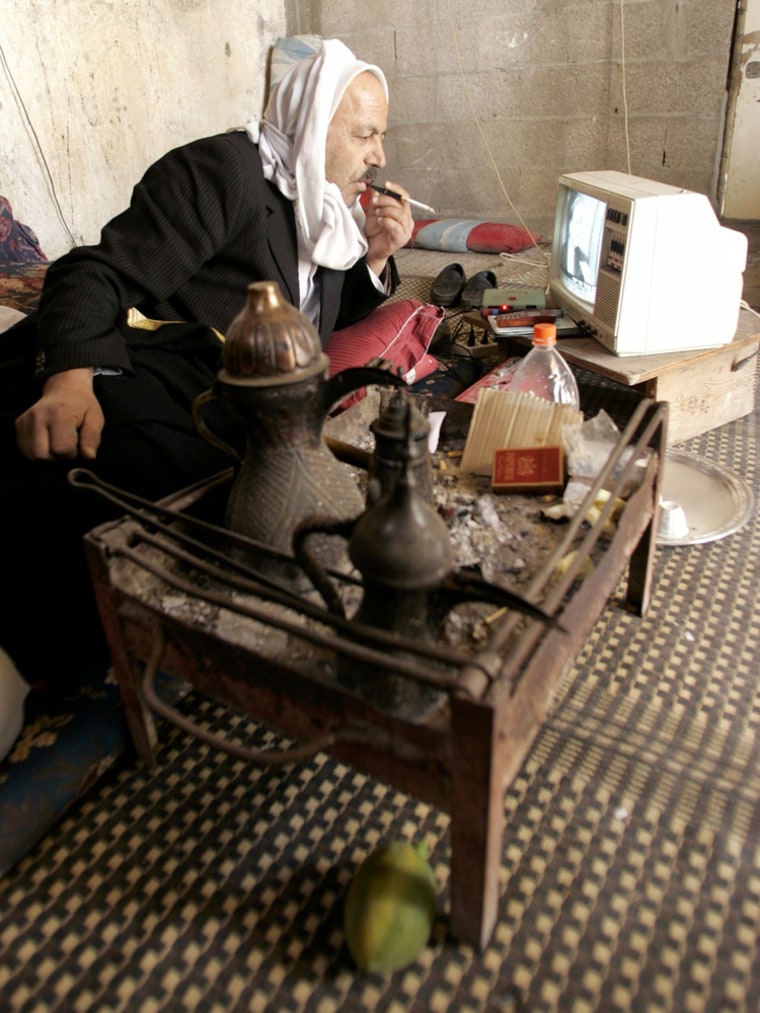Two Arab TV channels prematurely reported that Prime Minister Ariel Sharon had died Thursday as Arab media competed with each other in coverage of the condition of the Israeli leader.
The reports by Lebanon's Future Television and Dubai-based Al-Arabiya TV were not confirmed by Hadassah Hospital in Jerusalem, where Sharon was being treated. And the channels went back to reporting the latest medical bulletins on the ailing prime minister.
A politician general widely despised among Arabs, Sharon received straightforward news coverage in most Arab papers and television services Thursday. While some commentators vaunted their criticism of the hawkish politician, other Arab analysts praised the man who ended Israel's occupation of the Gaza Strip.
Whatever the view, everybody knew that the prime minister's apparent departure from government would have a major impact on Israel, which is slated to hold general elections on March 28, and on the Palestinian territories, where parliamentary elections are due on Jan. 25.
"Sharon is on the brink of death ... and Israel is on the edge of political turmoil," read the banner headline in the Lebanese newspaper As-Safir.
Sharon needed for peace
The Jordanian political analyst Labib Kamhawi said: "If God wants an Israeli-Palestinian peace settlement, then Sharon will not die."
"There is no Israeli politician other than Sharon at this point who can implement peace," Kamhawi told The Associated Press.
However, in Damascus, Syria, a radical Palestinian leader called Sharon's crisis a present from God.
"We say it frankly that God is great and is able to exact revenge on this butcher ... We thank God for this gift he presented to us on this new year," said Ahmed Jibril, the leader of the Syrian-backed faction Popular Front for the Liberation of Palestine-General Command.
The Palestinian legislator Hanan Ashrawi praised Sharon's strength but criticized his direction.
"Sharon was a strong and charismatic leader who steered the politics toward the right and extremism," Ashrawi told Al-Arabiya TV. "Now it is clear that Israel needs a leadership that proceeds strongly toward peace, or else the extremist right will hijack the situation."
A Jordanian lawmaker, Ali Abul-Sukar, had a bleak view of Sharon's stepping down.
"All the Israeli leaders are the same toward the Palestinian issue," he said. "If Sharon leaves the political arena, there are lots of other Sharons."
"The only positive point of Sharon's departure from the political arena is the departure of a war general whose hands are stained with the blood of Sabra and Shatila, Jenin and Gaza," Abul-Sukar added.
Sabra and Shatila are two Palestinian refugee camps in Beirut where Lebanese militia massacred hundreds of people in 1982 although Israeli troops controlled that part of the city. An Israeli judicial commission implicated Sharon in the killing and he was forced to resign as defense minister.
The West Bank town of Jenin and the city of Gaza were spots of heavy fighting between Israeli troops and Palestinians in recent years.
Extensive coverage in Arab world
The Al-Jazeera satellite channel broadcast a special report on Sharon's health situation. Called "On the sick bed," the brief report included footage of Israeli officials talking about his medical condition and pictures of Israelis waiting outside Hadassah Hospital in Jerusalem, where Sharon is being treated.
Earlier Thursday, Al-Jazeera aired an extended interview with Sharon adviser Raanan Gissin on the prime minister's condition. The Qatar-based channel is virtually the only Arab TV channel that regularly interviews Israeli officials.
But later Thursday Al-Arabiya also ran an interview with an Israeli when its newscaster questioned a political analyst in Tel Aviv about Sharon.
A Palestinian commentator told Al-Arabiya network that Sharon was "the first Israeli leader who stopped claiming Israel had a right to all of the Palestinian's land," a reference to Israeli's recent withdrawal from the Gaza Strip.
"A live Sharon is better for the Palestinians now, despite all the crimes he has committed against us," said Ghazi al-Saadi.
In the United Arab Emirates, news about Sharon was eclipsed for some of the day by coverage of the funeral for Sheik Maktoum bin Rashid Al Maktoum, the emir of Dubai and prime minister of the United Arab Emirates who died Wednesday.
